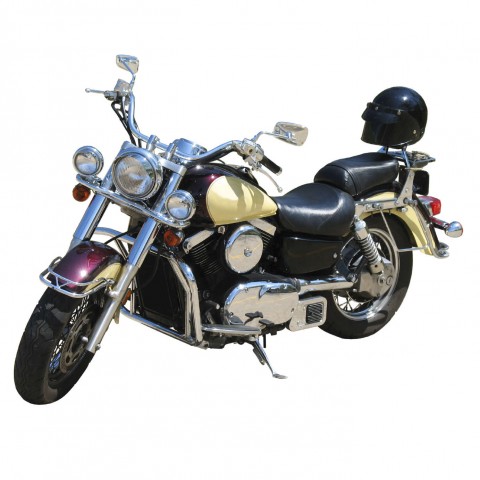
You may be surprised at how fast you can start speaking Indonesian.
Once you get a good stock of vocabulary, all you need to memorize is a handful of customizable Indonesian sentences. Then, you can easily make people think you’re good at the language.
In Indonesian, there are some fascinating grammatical aspects concerning verbs, but for communication purposes, you can leave them out entirely—plenty of Indonesians do this, too!
So picking up Indonesian through patterns is pretty easy. In this article, we’ll outline ten different sentence patterns ready for your plug-and-play use. By the time you get to the end, you’ll probably start noticing these patterns (and more) all over the place in your studies!
 Table of Contents
Table of Contents
- Simple Noun Equivalencies
- Using Adjectives in Indonesian Sentences
- Expressing Your Desires
- What Do You Need?
- Quick Review: Questions
- Simple Requests
- Asking Where Things Are
- Using “Because” in Indonesian
- Describing Things That Happened
- If This, Then That
- Conclusion
1. Simple Noun Equivalencies

The Indonesian word for connecting two nouns is adalah. It means something like “is,” but you’ll note in the next section that it’s used only for nouns, not adjectives. Let’s see this Indonesian sentence structure in action:
- Hary adalah rektor.
“Hary is the rector.”
- Dia seorang supir.
“She is a driver.”
- Jam ini adalah hadiah dari istriku.
“This watch is a present from my wife.”
- Restoran ini adalah restoran Tiongkok.
“This restaurant is a Chinese restaurant.”
- Motor merah adalah motor sang presiden.
“The red motorcycle is the president’s motorcycle.”
2. Using Adjectives in Indonesian Sentences

In Indonesian sentences, adjectives always follow nouns. And for a simple noun-is-adjective kind of sentence, you only need two words!
- Langit biru.
“The sky is blue.”
- Suara anjing itu besar.
“The dog’s voice (bark) is loud.”
- Motor merah itu bukan motor teman sekelasku.
“The red motorcycle isn’t the motorcycle of my classmate.”
- Mereka suka menonton film-film Korea.
“They like watching Korean movies.”
- Susu yang dijual di pasar malam tidak begitu segar.
“The milk sold at the night market isn’t that fresh.”
3. Expressing Your Desires

There are a number of different verbs for “want” in Indonesian. The first and most common is mau, pronounced ma-oo with a clear distinction between the vowels.
- Saya mau es teh.
“I want iced tea.”
- Anak itu mau pergi.
“The child wants to leave.”
The next word, used just as commonly, is ingin (literally “to wish”). In informal Indonesian spoken on Java, it’s pronounced more like engin, but the meaning is the same. It’s usually followed by verbs.
- Kelas itu membosankan dan para mahasiswa ingin pergi ke pantai.
“The class is boring and the student wants to go to the beach.”
- Ibu ingin menjual buah-buahan.
“Mother wants to sell fruits.”
Lastly, the verb hendak is the most common way to say “to want” in the related Malay language, but in Indonesian, it’s something formal you’d only hear in speeches or read in books.
- Harimau hendak makan orang di desa.
“The tiger wants to eat the people in the village.”
4. What Do You Need?

Every learner should know basic Indonesian sentences for expressing needs. In English, we typically use the words “must” and “need” for this, and we can do the same thing in Indonesian. Harus is the Indonesian word for “must” and perlu is “need.”
Here are a few examples of how to use them in Indonesian phrases:
- Kamu harus pergi sekarang.
“You must go now.”
- Aku perlu motor baru.
“I need a new motorcycle.”
- Aku harus membeli motor baru.
“I must buy a new motorcycle.”
- Kamu harus mengingat apa yang saya bilang ini.
“You must remember what I’m saying.”
5. Quick Review: Questions

So far, these sentences have been really simple and easy! Let’s practice the necessary verbs again, this time by adding the question word apakah, or the question suffix -kah.
- Perlukah Anda motor baru?
“Do you need a new motorcycle?”
- Apakah kamu mau es teh?
“Do you want iced tea?”
- Apakah langit biru?
“Is the sky blue?”
The word apa (“what”) is indispensable in both questions and answers in Indonesian. We already saw apa yang saya sedang bilang (“what I am saying to you”) in a statement format, so here’s the question version.
- Film apa ini?
“What film is this?”
- Apa itu “bebek?”
“What is a ‘duck’?”
6. Simple Requests

There are two very commonly used words in Indonesian for asking people to do things for you, and of course, several more words besides. Tolong has a general sense that you really need that thing done, while mohon is simply a polite request word.
- Mohon duduk dulu.
“Please sit first.”
- Tolong bawakan aku kamus Arab.
“Please bring me the Arabic dictionary.”
- Mohon untuk tidak makan babi di restoran ini.
“Please don’t eat pork in this restaurant.”
You can use minta in much the same way as you use mohon, with the added ability to use it to order food.
- Minta segelas jus stroberi.
“One glass of strawberry juice, please.”
- Minta cepat, ya.
“Please hurry it up.”
That last sentence is of great use as is whenever you’re at a restaurant and particularly hungry!
7. Asking Where Things Are

Indonesian uses a “locative particle,” di, instead of the typical set of prepositions we know from other languages. You can think of di as being similar to “at,” and then whatever word follows di can indicate the location more precisely.
- Aku di kamar.
“I’m in the room.”
- Dompet di dalam tas.
“The wallet is in the bag.”
- Jangan duduk di atas meja.
“Don’t sit on top of the table.”
By using another question word, mana (“which”), you can start asking questions.
- Di mana dompetku?
“Where is my wallet?”
- Kamu berada di kamar mana?
“Which room are you in now?”
8. Using “Because” in Indonesian
Now let’s go a little bit more advanced and use the conjunction karena, meaning “because.” Don’t worry, though; it works in Indonesian language sentences just like you’d expect it to in English!
We had some very basic noun and adjective sentences right at the beginning of the article, so let’s replicate that pattern and see how we can connect cause and effect.
- Dia sakit karena air kotor.
“He is sick because the water is dirty.”
- Orang-orang takut karena harimau lapar.
“The people are scared because the tiger is hungry.”
Naturally, you can add verbs after karena. The only difference from English is a bonus for learners: You don’t need to repeat the subject or a pronoun. The subject is remembered from the first half of the sentence.
- Filmnya keren karena ceritanya bagus.
“The film was cool because it had a good story.”
- Aku perlu motor baru karena motor saya rusak.
“I need a new motorcycle because my motorcycle is broken.”
- Fifi dihukum karena menyetir terlalu cepat.
“Fifi was punished because she drove too fast.”
9. Describing Things That Happened

Past tense in Indonesian is often taken care of through context alone. If you’re already having a conversation about something that happened, there’s usually no grammatical marking in the sentence to refer to the past tense again and again.
The particle sudah means “already,” and it’s your best bet when you want to explicitly introduce the past tense.
- Dia sudah sarapan.
“He (already) ate breakfast.”
- Apakah presentasi sudah selesai?
“Has the presentation already finished?”
- Aku sudah membaca buku baru itu.
“I have read that new book.”
When you ask a question about things that might have already happened, you should try to end it with the word belum (“not yet”). It’s totally fine if you say something like the presentation example above, but using belum can often sound a little more idiomatic.
- Kamu sudah makan belum?
“Have you already eaten yet?”
- Dia sudah lulus belum?
“Has she already graduated yet?”
10. If This, Then That
Like “because,” you might worry that conditional statements in Indonesian are above your level. Fear not, because it really does work in quite a familiar way! Things that might take a couple of semesters to figure out in European languages are open to you right now before the end of this article.
The word for “if” is kalau. Here’s how it’s used in an Indonesian sentence:
- Kalau tidak tidur, ngantuk.
“If [you] don’t sleep, [you will be] sleepy.”
- Aku tidak akan ikut kalau ada PR.
“I’m not going to come if I have homework.”
- Kalau presiden tetap berbohong, orang-orang tidak akan memilih dia lagi.
“If the president keeps lying, people won’t vote for him again.”
- Kalau kamu belajar bahasa Indonesia, kamu harus membaca buku Indonesia.
“If you study Indonesian, you need to read Indonesian books.”
The other use for kalau is as a marker of a changed topic, something like “as for” in English.
- Kalau Jakarta, terlalu macet.
“If [we’re discussing] Jakarta, it’s too congested.”
- Kalau di Bali, kamu harus pergi ke Ubud!
“As for Bali, you’ve got to go to Ubud!”
11. Conclusion
We didn’t point it out explicitly, but you probably noticed the Indonesian way to express ownership, too: If teman is “friend,” teman saya is “friend I” or “my friend.”
If you go through some of the Indonesian lessons and resources here on IndonesianPod101.com, who knows what other patterns you’ll find? Your brain is absolutely wired to pick up on connections like this.
The only problem is, you might learn too fast and start speaking more than you can understand! Always balance your spoken or written Indonesian with lots of listening and reading.
Good thing IndonesianPod101 has everything you need in that regard, too—vocabulary lists, grammar and pronunciation guides, and even smart flashcards!
Check out the Indonesian learning materials right here and enjoy effortless Indonesian in practically no time at all!
Before you go, let us know in the comments if we’ve answered your questions today! How many of these Indonesian sentences are new to you? We look forward to hearing from you!










